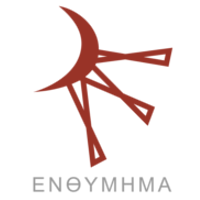«There is Nothing There». Dmitrii Danilov’s Travel Writing and the Lure of the Russian Provinces
DOI:
https://doi.org/10.54103/2037-2426/15463Parole chiave:
Dmitrii Danilov, Russian Literature, Russian Provinces, Travelogue and Travel Writing, Michel de CerteauAbstract
Drawing on Michel de Certeau’s seminal study The Practice of Everyday Life, the author argues that Dmitrii Danilov’s travel writing (Twenty Cities, 2007-2009) reimagines Russia’s symbolic geography by destabilizing the traditional opposition centre – periphery. Rather than depicting the provincial world as either an absurd and horrid world, or as a repository of ‘true Russianness’, Danilov provides a ‘decentred’ perspective on the provinces that asserts the uniqueness of each city he visits. The novel Description of a City (2012), however, resurrects the more traditional view of the provinces as a world of boredom and cultural lack. To analyse this development the article looks at the central figure of the sluggish traveller-narrator, the employment of ‘camera-eye narration’ and other, mainly linguistic, devices that reaffirm the notion of the provincial city’s ‘namelessness’ as one of its most defining characteristics.Downloads
Riferimenti bibliografici
Abashev, Vladimir. “Liricheskuiu repliku Vitalii Kal’pidi. ‘Provintsiia kak fenomen kul’turnogo separatizma.’ Obsuzhdaiut Vladimir Abashev, Viacheslav Rakov, Andrei Matveev, Dmitrii Kharitonov, Nikolai Koliada”. Ural’skaia nov’, no. 1, 2000. (https://magazines.gorky.media/urnov/2000/1/liricheskuyu-repliku-vitalij-kalpidi-provincziya-kak-fenomen-kulturnogo-separatizma-obsuzhdayut-vladimir-abashev-vyacheslav-rakov-andrej-matveev-dmitrij-haritonov-nikolaj-kolyada.html).
Belousov, Aleksandr. “Simvolika zakholust’ia (oboznachenie rossiiskogo provintsial’nogo goroda),” Geopanorama russkoi kul’tury. Provintsiia i ee lokal’nye teksty, Iazyki slavianskoi kul’tury, 2004, pp. 457-481.
Danilov, Dmitrii. Dvadtsat’ gorodov. Popytka al’ternativnoe kraevedenie. Il-music, 2016.
–––. Opisanie goroda. Astrel’, 2012.
–––. “Moi okrainy. Istoriia perezdov,” Russkaia zhizn’ , 10 September 2008. (http://rulife.ru/old/mode/article/907/).
–––. “Angel moi, golubchik. Orel kak zapovednik geniev,” Russkaia zhizn’, 29 February 2008. (http://rulife.ru/old/mode/article/564/).
–––. “Led i ochag. Skromnoe protsvetanie raionnoi biblioteki,” Russkaia zhizn’, 1 February 2008. (http://rulife.ru/old/mode/article/505/).
–––. “Dva dnia poliarnoi nochi. Chto vidno v murmanskikh sumerkakh,” Russkaia zhizn’, 21 December 2007. (http://rulife.ru/old/mode/article/451/)
–––. “Toshnota. Ul’ianovskii memorial: slishkom mnogo Lenina,” Russkaia zhizn’, 9 November 2007. (http://rulife.ru/old/mode/article/361/).
–––. “Cherepovets. Sever i stal’. Cherepovets. Seryi tsvet emu k litsu,” Russkaia zhizn’, 17 August 2007. (http://rulife.ru/old/mode/article/229/).
–––. “Neob”iatnyi malen’kii Briansk. Sovetskii gorod drevnee Moskvy,” Russkaia zhizn’, 3 August 2007. (http://rulife.ru/old/mode/article/197/).
–––. “Khimgigant s chellitsom. Kak ia ne pobyval v Novomoskovske,” Russkaia zhizn’, 20 July 2007. (http://rulife.ru/old/mode/article/171/).
–––. Dom desiat’. Povest’, rasskazy, Raketa, 2006.
De Certeau, Michel. The Practice of Everyday Life, translated by Steven Rendall, University of California Press, 1984.
Donovan, Victoria. “‘How Well Do You Know Your Krai?’ The Kraevedenie Revival and Patriotic Politics in Late Khrushchev-Era Russia.” Slavic Review 74, no. 3, 2015, pp. 464-483.
Ely, Christopher. This Meager Nature. Landscape and National Identity in Imperial Russia. Northern Illinois University Press, 2002.
Etkind, Alexander. Internal Colonization. Russia’s Imperial Experience. Polity, 2011.
Johnson, Emily D. How St. Petersburg Learned to Study itself: the Russian Idea of Kraevedenie. Pennsylvania State University Press, 2006.
Kashin, Oleg. “Malen’kaia zhanrovaia revoliutsiia,” in: Danilov, 2016, pp. 267-269.
Lennon, John, and Malcolm Foley. Dark Tourism: The Attraction of Death and Disaster. Engaging Learning, 2010.
Leerssen, Joseph Th. “The Rhetoric of National Character: A Programmatic Survey,” Poetics Today 21, no. 2, 2000, pp. 267-292.
Lotman, Yuri. The Structure of the Artistic Text. Trans. Ronald Vroon, The Department of Slavic Languages and Literatures (Ann Arbor), 1977.
Lounsbery, Anne. Life is Elsewhere. Symbolic Geography in the Russian Provinces, 1800-1917. Cornell UP.
Oushakine, Serguei Alex. The Patriotism of Despair. Nation, War, and Loss in Russia. Cornell UP.
Parts, Lyudmila. “Topography of Post-Soviet Nationalism: The Provinces – the Capital – the West,” Slavic Review 74, no. 3, 2015, pp. 508-528.
Shul’gun, Madlen. “‘Antiputeshstvie’ Dmitriia Danilova ‘opisanie goroda’: vektory zhanrogo modeliriovaniia,” Suchasni literaturoznavchi studii. Literaturii diskurs: transkul’turni vimiri. no. 12, 2015, pp. 623-632.
Spivak, Monika. “‘Provintsiia idet v regiony’: O nekotorykh osobennostiakh sovremennogo upotrebleniia slova provintsiia,” Geopanorama russkoi kul’tury. Provintsiia i ee lokal’nye teksty, Iazyki slavianskoi kul’tury, pp. 502-515.
Stanzel, Franz. A Theory of Narrative, translated by Charlotte Goedsche with a preface by Paul Hernadi, Cambridge UP, 1984.
Dowloads
Pubblicato
Come citare
Fascicolo
Sezione
Licenza

Except where otherwise noted, the content of this site is licensed under a Creative Commons Attribution 4.0 Unported License.
Accettato 2021-12-11
Pubblicato 2022-01-01





